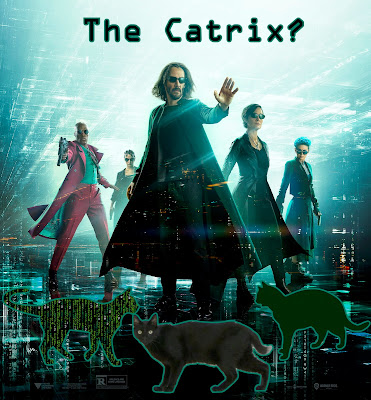Theology, Ethics, and Spirituality centered on the Trinity and Incarnation, experienced through Theosis, in Sacramental Life, leading to Apokatastasis, explored in maximally inclusive ways. And other random stuff.
2022-06-01
2022-05-28
De Chardin on the necessity of evil in a finite creation
2022-05-26
2022-04-07
Proems and Poetry
2022-04-01
2022-03-06
A Personal Relationship with Jesus?
2022-02-24
On the meaning of Kenosis
2022-02-05
John Seven Twenty Four
2022-01-30
On reading while walking
2022-01-14
Diversity, Equity, Inclusion, and Scripture
2021-12-30
Resurrecting the Matrix: An Ideological Review
2021-12-01
Stupidity as a gateway to Fascism
2021-11-24
Religious Fascination
2021-11-17
God Insists
2021-11-10
Proverbs 31 and the Noble Spouse
2021-10-08
Arguing for the sake of God
2021-10-05
Why we really believe what we believe
2021-10-02
Atonement, Substitution, and Bad Analogies in Reformed Theology
Tiptoeing through the TULIP
What the hell is Hell?
2021-06-12
A Prayer for too much to do
2021-06-03
A Post Pentecost Poem
2021-05-10
Diversity, Inclusion, Equity, and Episcopal Identity
2021-04-16
2021-04-03
Did Christ have to die on the Cross?
2021-03-08
God is...
2021-02-01
2021-01-27
Chaplaincy and Spirituality at TMI
The essay found here originally appeared as the description of the Spirituality Pillar at TMI - The Episcopal School of Texas in San Antonio. It outlines my philosophy of school chaplaincy, and my vision of the basic dimensions of student spiritual formation in Episcopal Schools.
"May the God of peace himself sanctify you entirely; and may your spirit and soul and body be kept sound and blameless at the coming of our Lord Jesus Christ." 1Thessalonians 5.23
Spirituality can be a very difficult term to define. For some, spirituality means almost the same as "organized religion": It refers to the collection of beliefs, values, practices, and rituals we use to connect with God. For others, spirituality means precisely the opposite: It refers to our feelings of being attached to God or Spiritual Reality, without defining that feeling with practices, rituals, or beliefs.
In Christian Scriptures such as that quoted above, the word "spirit" is used to refer to that part of a person that is spiritually aware and responsive. Just as the "body" is physically aware and responsive to the physical environment, and the "soul" is internally aware and responsive to our inner desires, so also our "spirit" is that part of us that can connect to, and communicate with, spiritual reality.
Thus, at TMI, spirituality refers to our human receptivity to God's presence, and our yearning to be connected at a deep level with the Meaning, Purpose, and Source of our existence. Spirituality is like an appetite, or a hunger, to be fed by "spiritual food", just as our physical appetite is fed by physical food. Spirituality is also like a muscle: The more it is worked, the stronger it gets. Thus, spirituality is not just something static in humans. It is something that can be fed, and strengthened, and grow over time.
Because of this, our "Spiritual Pillar" at TMI focuses on practical ways to feed, and strengthen, the spirits of our students. The three main ways that we put our spirituality into practice are our Daily Chapel Program, the Academic Study of Religion, and our Community Service program.
2021-01-25
Forming Servant Leaders at TMI Episcopal
The following is a proposal for a comprehensive program of spiritual and ethical formation centered around "Servant Leadership" at TMI Episcopal. The concept of becoming a Servant Leader is at the center of TMI experience, and is the ultimate goal of the TMI Mission statement:
TMI provides an exceptional education with values based on the teachings of Jesus Christ that challenge motivated students to develop their full potential in service and leadership.
Although we speak of "servant leadership" all the time, and encourage our students to become servants to others, and teach them skills to develop their ability to lead, many of us do not really have a definition of what a "servant leader" is, nor do we know how this can be operationalized in practice. And while we espouse core values that are central to servant leadership, and we have a role model for servant leadership in the person of Jesus Christ, we often struggle to say exactly what qualities we are looking for in the servant leaders we graduate from TMI and send out into the world.

































